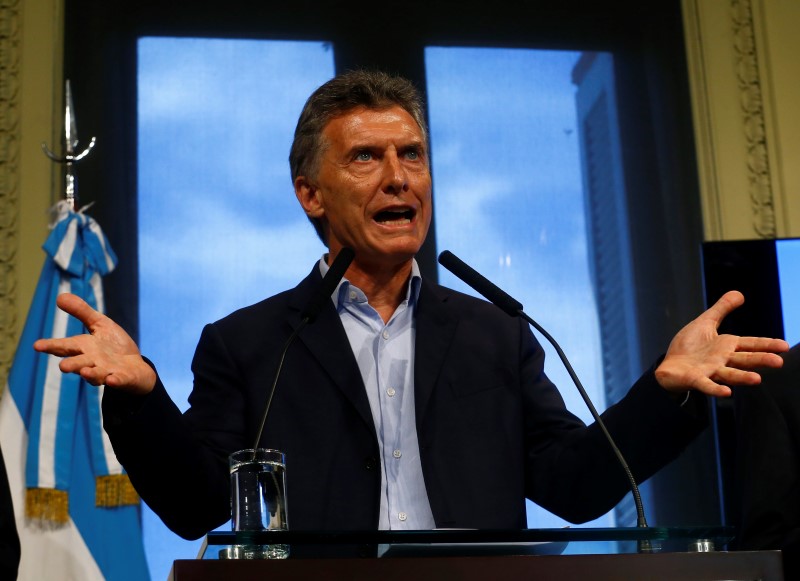By Nicolás Misculin
BUENOS AIRES (Reuters) - In power just two months, Argentina's President Mauricio Macri is already facing labour unrest, with a national public sector strike planned for Wednesday as workers protest rocketing inflation and job cuts.
Unions representing hospital staffers and government office workers, among other public sector employees, are staging a one-day walkout across the country.
It is the first such strike that Macri, Argentina's first non-Peronist president in more than a decade, has faced since taking over in December with promises to end lefitst populism and revive the South American nation's ailing economy.
One of Macri's first moves in power was to slim down Argentina's bloated public payroll, firing thousands in a bid to tame a ballooning fiscal deficit.
The government also devalued the peso currency and erased long-running fuel subsidies, further stoking inflation already running at 30 percent.
Although praised by international investors eying Argentina's rich resources, Macri's rapid policy moves are fuelling rising discontent at home.
Polling firm Ricardo Rouvier & Asociados found that approval of the government, while still relatively high at 60 percent, has fallen 11 percentage points in the two months since Macri took office. Some 12 percent of those polled who voted for Macri in November's election say they would change their vote now.
"The carrying out of the campaign promises seems to me very hurried, not well analysed, as if they only wanted to show that they are fulfilling their promises," said 40-year-old Marcelo Garcia, who voted for Macri but said he felt "a bit disappointed."
Looking to cool inflation, Macri had hoped pay increases would not be any higher than the 2016 inflation goal of 25 percent. But a source at the labour ministry who has been present at wage negotiations said "there was no 25 percent roof."
The country's powerful teachers' unions, who say they were promised 32 percent, are now also threatening action, days from the start of the beginning of the academic year in Argentina.
"The government is walking on a knife edge," said political analyst Ricardo Rouvier. "On one side there are those who are building pressure for orthodox economics and shock policy. On the other is the threat of action from social movements."
Some 21,000 public sector workers lost their jobs in belt-tightening moves after Macri took office but 5,000 have since been rehired, union boss Hugo Godoy told Reuters.

"If the government doesn't respond, we will continue with forceful measures," he said.